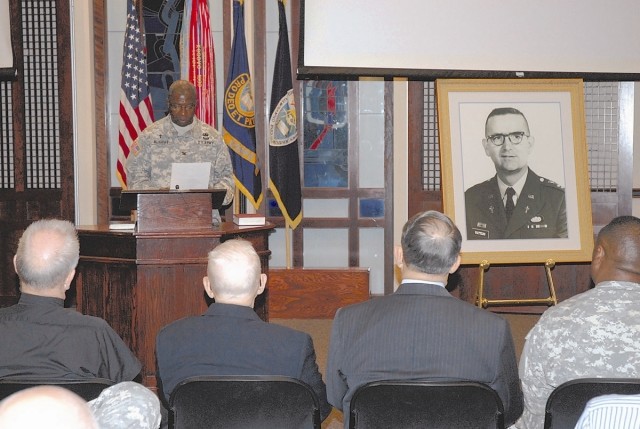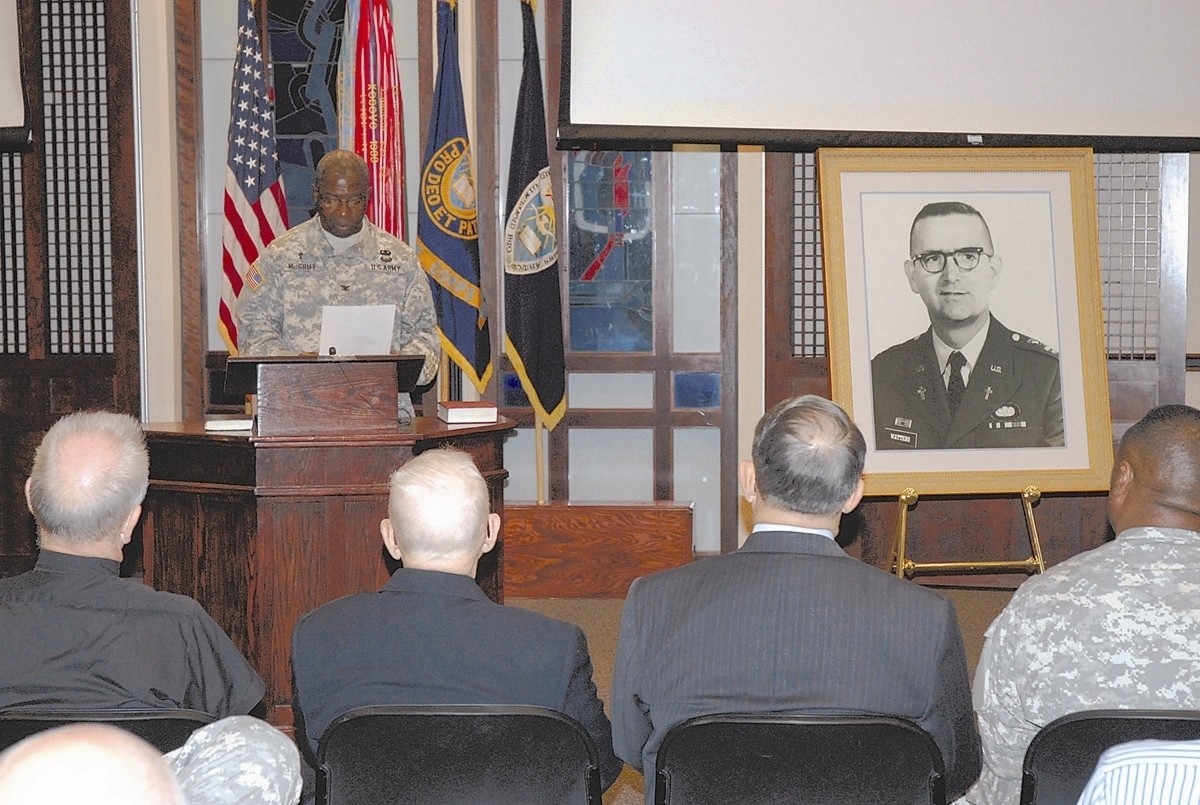
FORT JACKSON, S.C. (Army News Service, Nov. 29, 2007) - The building housing the Army Chaplain Center and School here was renamed Watters Hall in a Nov. 20 ceremony honoring a chaplain killed in action 40 years ago in Vietnam.
Maj. Charles Watters was posthumously awarded the Medal of Honor for retrieving four wounded Soldiers from harm's way while under enemy fire and administering aid to other wounded Soldiers when he was killed.
"Few of us will ever be called upon to make choices like those Charles Watters made that day in November 1967, but each of us can and should be inspired by his example to demonstrate the same degree of selflessness as we provide spiritual leadership for the Army Family," Maj. Gen. Douglas Carver, the Army chief of chaplains, said in a letter read during the ceremony.
"Just as he repeatedly went outside the safety of his battalion's perimeter to save the lives of wounded troopers, to literally 'seek and save that which was lost' so should you and I resolve to be selfless shepherd-leaders to the flock over which God has given us charge," he continued.
Chaplain Watters, who was assigned to Company A, 173rd Support Battalion, 173rd Airborne Brigade, died during an assault in the vicinity of Dak To, Republic of Vietnam, Nov. 19, 1967. The chaplain was with one of the companies when it engaged a heavily armed enemy battalion.
Unarmed and completely exposed, with "complete disregard for his own safety," according to his award citation, Chaplain Watters moved among and in front of the advancing troops to give aid and assist in the evacuation of wounded Soldiers.
"When a wounded paratrooper was standing in shock in front of the assaulting forces, Chaplain Watters ran forward, picked the man up on his shoulders and carried him to safety," said retired Chaplain Maj. Gerald Pincince. "Chaplain Watters ran through intense fire to aid a fallen comrade."
A short time later, the paratroopers pulled back and Chaplain Watters risked exposure to recover two wounded Soldiers. He then noticed several wounded Soldiers were lying outside the newly formed perimeter. Without hesitation and ignoring attempts to restrain him, Chaplain Watters left the perimeter to carry and assist the injured Soldiers to safety three times in the face of small arms, automatic weapons and mortar fire.
Satisfied that all of the wounded were inside the perimeter, he began aiding the medics, giving spiritual and mental strength and serving food and water. Chaplain Watters was killed moments later from a friendly-fire bomb that was mistakenly dropped on the area.
Chaplain Watters was born in Jersey City, N.J., Jan. 17, 1927, and attended Seton Hall College and Immaculate Conception Seminary. He was ordained in 1953 and served parishes in Jersey City, Paramus and Cranford, N.J., before becoming a New Jersey Air National Guard chaplain in 1962 and an active-duty Army chaplain two years later. Sent to Vietnam in 1966, Chaplain Watters served the required 12-month tour and volunteered to stay for six more months. His funeral was held Dec. 11, 1967, at Fort Myer, Va., and he is buried in Arlington National Cemetery.
The Medal of Honor is the highest award that can be bestowed upon an American servicemember for valor in action. Originally authorized by Congress at the beginning of the Civil War, the president generally presents the award in the name of Congress.
(Chris Rasmussen writes for the "Fort Jackson Leader.")

Social Sharing